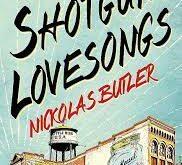 You may be wondering what you can do to better protect yourself during cold, flu and COVID season. The uncomfortable truth is that we are continually exposed to bacteria, viruses and fungi that are inhaled, swallowed, or live on our skin or in our body. Whether these organisms lead to disease depends partly on how “mean” the bug is and how many of them there are. However, it depends just as much, if not even more, on how well your immune system is working to defend your body.
You may be wondering what you can do to better protect yourself during cold, flu and COVID season. The uncomfortable truth is that we are continually exposed to bacteria, viruses and fungi that are inhaled, swallowed, or live on our skin or in our body. Whether these organisms lead to disease depends partly on how “mean” the bug is and how many of them there are. However, it depends just as much, if not even more, on how well your immune system is working to defend your body.
The good news is that there is a lot that you can do to help your immune system work better! We will explore a few of these things, but first we need to talk a little bit about what our immune system is.
Our Amazing Immune System
Our immune system is an amazing interactive network of organs, white blood cells, and proteins that protect the body from foreign substances and organisms (as well as our own damaged cells, such as cancer cells). This system is constantly adapting and learning so that the body can fight against bacteria and viruses as they change over time. There are 2 arms to our immune system, the innate immune system and the adaptive immune system. (A)
The innate immune system is more of a general defense against bad bugs and chemicals (think of it as the “Army and/or Navy” that offer broad protection from invasion). It prevents infection with certain mechanical barriers (such as oil on skin and stomach acid), and has the ability in general to tell friend from foe, and to start the attack using antimicrobial proteins and certain white blood cells such as macrophages. Macrophages see things that look “shady”, surround them to “hem them in”, engulf and literally “digest” the invader. Fever is another one of the many tactics that the innate immune system uses to slow the spread of infection. This is why for most people, as long as the fever is not too high and you are not too miserable, you should NOT reach for ibuprofen or acetaminophen at the first sign of a fever. Let the fever do it’s job in slowing the down the invasion! It’s there to help your white blood cells gain the advantage over the enemy.
The adaptive immune system targets very specific pathogens that the body has been in contact with and has learned from (think of this as the Army Green Berets or Navy Seals who, after collecting intel, perform very targeted special operations to take the enemy out). This system has 2 components. Certain white blood cells, called B cells, take “pictures” of the invaders and then create antibodies. This is called humoral immunity. Antibodies can sometimes disable the bad guys on their own, but most of the time they “tag & flag” them for destruction by other special ops teams (killer T cells). Antibodies will float around in the blood stream for some time after the attack (weeks to months, and occasionally years). Then if the threat remains neutralized, they will fade away.
Antibodies are the part of the immune system that vaccines are designed to stimulate. (B) In a basic sense, a vaccine is made from a dead pathogen (or piece of the dead pathogen) that tricks the body into thinking it’s been invaded. So the adaptive immune system starts to generate antibodies. Modern day vaccines also contain adjuvants, which are things that are designed to irritate and stimulate the immune system even further to help amplify the body’s response. You can test antibody levels for a certain pathogen (for example, the measles virus) to see if you have an immune response from the actual virus, or if you’ve had the MMR shot, to see if the vaccine generated antibodies. The presence of antibodies theoretically means you are protected (which may or may not be the case, but that’s for another conversation).
The other component of the adaptive immune system trains certain white blood cells to become specialized cells such as killer T cells. This is called cellular immunity. These guys are trained to take out very specific targets. The body also makes memory T cells. Like like a good professor, memory T cells teach the next generation of cells what to look for and how to fight a second invasion if it ever happens. These memory cells can last years to decades. These memory T cells are one of the reasons that people who have had a “cold” from one of the common coronaviruses in recent years seem to do better if they get SARS-CoV2. These memory cells recall what the coronavirus looked like and how to neutralize it. That may be why many who get SARS-CoV2 have only minor symptoms.
So, you may ask…What can I do to help my immune system?
Give it the Right Fuel and Building Blocks
As you can imagine, it takes a lot of resources to nourish your immune system military and special forces. Those guys need good fuel to fight. You can’t build good weapons using bad materials. Similarly, it’s difficult for your body to have a strong immune system if all you’re fueling up with is bad building blocks from junk food (such as salty snacks like chips, crackers & fried food and sugary foods like soda, cookies & candy). Sadly, these convenience foods are mostly “empty calories” that do not provide much in the way of components to use to build up your immune system. Instead it stores it as fat.
Not only is junk food not particularly helpful, it contains inflammatory oils, artificial dyes, chemicals and preservatives that harm the body. Now your body has to defend against those things, as well as fight off invaders. It’s like the army trying to fight with only pellet guns while sounded by toxic tear gas…not nearly as effective. This is why it is SO important to limit the junk and work on getting in healthy whole foods, such as organic berries, brightly colored veggies, beans/lentils, free range chickens and their eggs, and grass fed beef, etc. (C)
Antioxidants Limit Collateral Damage
Even the most well trained army and special forces will have some casualties (some white blood cells die). There will also be collateral damage. While attacking the bad guys, some of the innocent bystanders die (for example the cells lining the lung may get harmed). In our body, this generates cellular debris and something called free radicals and oxidative stress. Free radicals are like “sparks” that can damage cells. Antioxidants and certain minerals can help “put out the sparks” and decrease collateral damage.
Vitamins and Supplements to Help Your Immune System*
Ideally we would get all the necessary ingredients to nourish and equip a tip-top immune system, and to be able to put out free radicals and eliminate toxins. Unfortunately, that is becoming increasingly difficult in our modern world full of chemicals, depleted soils and increasingly aggressive pathogens. Here are a few evidence-based supplements that may help (D):
Vitamin D – Many people think of Vitamin D as something to help strengthen bones. While this is true, research has shown that Vitamin D is critical for a healthy immune system, especially for T-cell response. Multiple studies clearly show that lower levels of vitamin D are associated with increased rates of infection. One study published in October 2020 showed that over 80% of COVID-19 patients hospitalized in Spain had a vitamin D deficiency. Normal values are typically 30-100, but most people should aim for a level above 40, and some say optimally 50-80. People living in the northern latitudes (i.e. WI) often have a suboptimal or deficient levels of vitamin D. Don’t just assume your level is ok. Ask your doctor to check a 25-OH-Vitamin D3 level.* If your level is low, supplement with a high quality Vitamin D3/K2 blend, taking enough to get a level at least above 40.
Vitamin C – Vitamin C contributes to immune defense by supporting various cellular
functions of the immune system, including putting out the free radicals that are generated. Vitamin C has been used in hospital ICUs to treat COVID-19 infection. A good starting point is taking 1000-3000 mg daily.
Zinc – A large body of research shows that zinc has strong anti-viral properties against many viruses. It works especially well in conjunction with quercetin. Take 30mg once or twice daily. Note that high doses of zinc for many months may decrease copper levels. It’s thought that 30mg daily is unlikely to cause that problem.
Quercetin – Quercetin is found in fruits and vegetables and has a wide range of benefits,
including decreasing viral growth. Consider taking 500-1000mg of quercetin daily.
Melatonin – In addition to promoting restful sleep, melatonin has been shown to reduce
inflammation, and thus may decrease the risk of developing a “cytokine storm”.
There are many more supplements that may be helpful, including Curcumin, NAC, Vitamin A, Elderberry, Green tea or EGCG, Resveratrol, Beta glucans, Medicinal mushrooms, Licorice root etc. For a more complete list of supplements that may help, please see:
COVID-19: Nutraceutical and Botanical Recommendations for Patients
https://p.widencdn.net/8fajn1/COVID-19_Nutraceutical-and-Botanical-Recommendations-for-Patients_v4
I-MASK+ Prophylaxis & Early Outpatient Treatment Protocol for COVID-19
Supplements to help you stay healthy during COVID-19
https://www.sperowellness.com/tips-to-stay-healthy-during-covid-19
Lifestyle Makes a Difference
In addition to healthy diet and targeted supplements, there are many lifestyle factors that can help your immune system win the battle. These things include regular exercise, reducing stress, prioritizing sleep, reducing EMF exposure (ie. turn off your WiFi router at bedtime, or put it on a Christmas lights timer to do it automatically), limit alcohol consumption, and quit using tobacco. Also, use the protective measures you’ve heard all along – frequent hand washing with soap and water for 20 seconds, minimize touching your face, stay home when sick, cough or sneeze into elbow, and seek medical attention and treatment when needed. (E)
You Have the Power to Promote a Healthy Immune System!
In summary, to help your immune system work better, do two things: 1) Take out the garbage (bad foods, toxic chemicals in personal care and cleaning products, tobacco, excess alcohol, unnecessary over-the-counter medications etc). These things are a distraction (or outright impediment) to the immune system. 2) Give the body good building blocks (good food, adequate sleep, relaxation, regular exercise, laughter, attitude of gratitude, connection with loved ones, targeted vitamins and supplements). Do this to improve your chances of defending an attack from a pathogen, as well as thrive in day to day life!
* PLEASE NOTE: You should always ask your personal doctor if these supplements are right for you.
** Readers of 5ive for Women will receive $20 off a vitamin D level at Spero Wellness Clinic through the month of March 2021! Simply tell us you heard about the special here. You do NOT need to be a patient at Spero. Call 715-861-2300 or simply walk in. (Regular price vitamin D level + phlebotomy fee = $70; 5ive for Women sale price $50). For those interested in a quick 20-30 minute IV nutrition boost, we also offer Myers’ cocktail. Through March 2021, will wave our $35 nurse intake visit fee for new 5ive for Women clients who want this service.
References:
(A) For those interested in learning more about the immune system, check out these resources:
- Types of Immune Responses: Innate and adaptive, humoral vs cell-mediated on Khan Academy types-of-immune-responses-innate-and-adaptive-humoral-vs-cell-mediated
- A Primer On How The Immune System Works (Videos+Images) https://selfhack.com/blog/primer-immune-system-works-videosimages/
- The innate and adaptive immune systems https://www.ncbi.nlm.nih.gov/books/NBK279396/
- Overview of the Immune Response by David Chaplin MD, PhD https://www.jacionline.org/article/S0091-6749(09)02837-1/pdf
- Covid-19: Do many people have pre-existing immunity? https://www.bmj.com/content/370/bmj.m3563
- For some information on vaccines:
- How the tetanus vaccine works how-the-tetanus-vaccine-works-bae788b13bea
- Vaccines for preventing the common cold https://www.cochrane.org/CD002190/ARI_vaccines-preventing-common-cold
- Virology 2015 Lecture #19: Vaccines https://www.youtube.com/watch?v=ERnZinlgua0
- Investigating Vaccines: The Rules of Evidence https://www.youtube.com/watch?v=1XZmzHZJKUM&feature=emb_logo
- Information on healthy foods for the immune system:
- 15 Foods That Boost the Immune System https://www.healthline.com/health/food-nutrition/foods-that-boost-the-immune-system
- 5 immune boosters to help keep you healthy amid COVID-19 outbreak https://health.ucdavis.edu/good-food/blog/nutrients-to-help-prevent-illness.html
- 30 Best Immune-Boosting Foods https://www.eatthis.com/immune-boosting-foods/
- Supplements to help the immune system:
- Association between serum 25-hydroxyvitamin D level and upper respiratory tract infection in the Third National Health and Nutrition Examination Survey https://pubmed.ncbi.nlm.nih.gov/19237723/
- Vitamin D and the Immune System https://www.ncbi.nlm.nih.gov/pmc/articles/PMC3166406/
- Study finds over 80 percent of COVID-19 patients have vitamin D deficiency study-finds-over-80-percent-of-covid19-patients-have-vitamin-d-deficiency
- T-cells really are the superstars in fighting COVID-19 https://www.bmj.com/content/370/bmj.m3563/rr-6
- For information about how D3 and K2 work together, view video at https://www.orthomolecularproducts.com/liquid-vitamin-d3-with-k2/
- Zinc and its role in immunity and inflammation https://www.sciencedirect.com/science/article/abs/pii/S1568997214002808?via%3Dihub
- The key role of zinc in elderly immunity: A possible approach in the COVID-19 crisis https://www.sciencedirect.com/science/article/abs/pii/S2405457720301182
- Vitamin C and Immune Function https://www.mdpi.com/2072-6643/9/11/1211/htm
- Possible application of high-dose vitamin C in the prevention and therapy of coronavirus infection https://www.ncbi.nlm.nih.gov/pmc/articles/PMC7553131/pdf/main.pdf
- Quercetin, Inflammation and Immunity https://www.mdpi.com/2072-6643/8/3/167/htm
- Melatonin: Buffering the Immune System https://www.mdpi.com/1422-0067/14/4/8638/htm
- Melatonin Inhibits COVID-19-induced Cytokine Storm by Reversing Aerobic Glycolysis in Immune Cells: A Mechanistic Analysis https://pubmed.ncbi.nlm.nih.gov/32395713/
- COVID-19: Nutraceutical and Botanical Recommendations for Patients https://p.widencdn.net/8fajn1/COVID-19_Nutraceutical-and-Botanical-Recommendations-for-Patients_v4
- I-MASK+ Prophylaxis & Early Outpatient Treatment Protocol for COVID-19 https://covid19criticalcare.com/wp-content/uploads/2020/11/FLCCC_Alliance-I-MASKplus-Protocol-v8-2021-01-12-ENGLISH.pdf
- Supplements to help you stay healthy during COVID-19 https://www.sperowellness.com/tips-to-stay-healthy-during-covid-19
- Lifestyle factors for a healthy immune system:
- 3 Types of Exercise to Boost Your Immune System https://medshadow.org/3-types-of-exercise-to-boost-your-immune-system/
- Major features of immunesenescence, including reduced thymic output, are ameliorated by high levels of physical activity in adulthood https://pubmed.ncbi.nlm.nih.gov/29517845/
- The Power of Movement: Living an Active Lifestyle https://p.widencdn.net/riht6s/The-Power-of-Movement—Living-an-Active-Lifestyle
- Effects of stress on immune function: the good, the bad, and the beautiful https://pubmed.ncbi.nlm.nih.gov/24798553/
- Behaviorally Assessed Sleep and Susceptibility to the Common Cold https://pubmed.ncbi.nlm.nih.gov/26118561/
- How to Boost Your Immune System — Top 19 Boosters https://draxe.com/health/how-to-boost-your-immune-system/
 Chippewa Valley 5ive for Women The Chippewa Valley’s Premier Magazine for Women!
Chippewa Valley 5ive for Women The Chippewa Valley’s Premier Magazine for Women!









